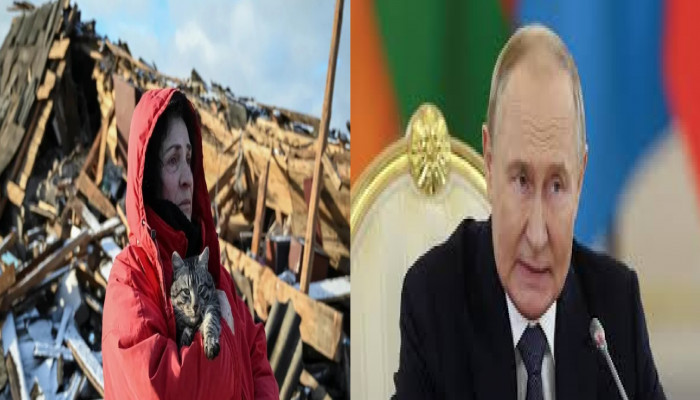Sanctions on Russia unenforced: No convictions for breaches
- In Reports
- 07:31 PM, Jan 17, 2025
- Myind Staff
The National Crime Agency has stated that the UK has not made any convictions for violating Russian sanctions. Sanctions against Russia were first introduced after Crimea's annexation in 2014 and expanded following the invasion of Ukraine in 2022. These sanctions include bans on exporting weapons technology, helping with illegal Russian oil trade and supporting President Vladimir Putin's government in any way. Although a law was passed four years ago to prosecute people who violate these sanctions, the NCA's director-general, in a letter to MPs, explained that the cases are very complex. So far, charges have only been brought once. Last week, Foreign Secretary David Lammy stated that he is committed to cutting off Russian revenues through sanctions. However, critics argue that Western sanctions are not as effective as expected, as figures from last year showed the Russian economy was growing.
The Office of Financial Sanctions Implementation (OFSI), a Treasury unit, investigates potential breaches of financial sanctions. In March, the OFSI received an additional £50 million to strengthen the enforcement of the UK's sanctions regime. In October, BBC News reported that the OFSI was investigating 37 UK-linked businesses for possibly violating Russian oil sanctions. Another 15 cases had been closed without any fines or penalties, and it is unclear how many more cases have since been resolved. In September, the OFSI issued its first penalty related to Russian sanctions. It fined a London-based concierge company, Integral Concierge Services, £15,000 for including a sanctioned individual on its client list. The company had made or received 26 payments involving this person, whose assets had been frozen under Russian sanctions. In November, members of Parliament on the Treasury Select Committee questioned OFSI officials about how effective their investigations are. However, the officials explained that it is ultimately the NCA's responsibility to prosecute and convict those who break the rules.
Later, the NCA's Director-General, Graeme Biggar, wrote a letter to the committee's chair. He explained that these cases are "complex and lengthy," and noted that similar cases in other countries usually take about seven years to complete. The Sanctions and Anti-Money Laundering Act, which is the law used for prosecutions, has only been in place for four years. Mr Biggar said: "Financial investigations of this nature are typically complex and lengthy. As a result, there have been no concluded prosecutions for offences under the new Sanctions and Anti Money Laundering Act." He added that the NCA had a "number of ongoing investigations with respect to financial sanctions breaches and other relevant crimes, some of which are awaiting charging decisions". In February last year, the NCA brought charges against a former governor of a Crimean city, accusing them of seven counts of evading sanctions and two counts of money laundering.
Treasury Select Committee chair Dame Meg Hillier said it was "critical the government can demonstrate that there are consequences when sanctions are breached". She added. "we must maintain the pressure on Russia-linked organisations and ensure there is a clear deterrent which prevents anyone from attempting to circumvent sanctions against Russia". In November, David Lammy said Western sanctions had "deprived Russia of more than $400 billion since February 2022, which is equivalent to four more years of funding for the invasion". MPs questioned him on if he would take action against UK companies that support the Russian oil industry, and he responded, "There is more to come, I suspect, over the coming days." No action has been taken yet, but in December, the government appointed former Labour MP Baroness Margaret Hodge as an anti-corruption champion.







Comments